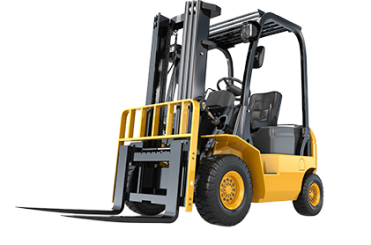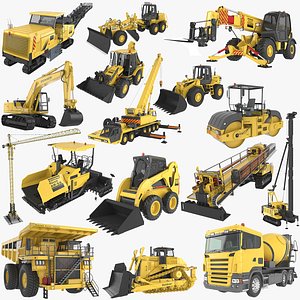Explore Our Equipment Rental Company for High-Quality Dozer Rental and Scissor Lift Rental Services
Explore Our Equipment Rental Company for High-Quality Dozer Rental and Scissor Lift Rental Services
Blog Article
Important Tips for Taking Care Of Heavy Tools Rental Contracts and Logistics Properly
Effectively handling hefty equipment rental contracts and logistics is critical for the success of any job that counts on these sources. A detailed understanding of rental terms, coupled with exact analysis of equipment needs, lays the foundation for favorable settlements. Working with transportation logistics and intending for recurring upkeep can dramatically reduce unexpected costs and delays. However, the complexities of these aspects commonly existing difficulties that need calculated foresight. What are the crucial considerations that can transform these potential pitfalls right into possibilities for performance and cost-saving?
Understand Rental Terms
Understanding rental terms is vital for effective hefty tools monitoring. The rental duration specifies the duration for which the equipment is leased, affecting budgeting and job timelines.
Moreover, it is vital to understand the upkeep obligations described in the arrangement. Generally, rental business preserve the devices, yet understanding who is accountable for regular checks and fixings is vital to avoid functional disruptions. Additionally, terms may consist of provisions worrying responsibility for problems or burglary, which can have significant financial effects otherwise effectively recognized.

Assess Devices Demands
Examining tools requirements is a vital step for any kind of task manager aiming to enhance source appropriation and boost operational performance. This process involves an extensive evaluation of the task requirements, consisting of particular jobs, timelines, and the sort of devices essential to accomplish wanted results.
Begin by recognizing the extent of the project and the tasks that will be carried out. Think about aspects such as the surface, the range of procedures, and any kind of possible obstacles that can affect equipment selection. Engaging with team members who will operate the machinery can provide valuable insights into useful demands and preferences.

Next, evaluate the ability and capacities of offered equipment options. It is necessary to match the right tools to the jobs available, guaranteeing that it can handle the anticipated work without jeopardizing security or performance.
Additionally, aspect in the rental period and frequency of use. Recognizing these components can assist determine whether renting out or buying is one of the most economical service. By performing a detailed evaluation of equipment demands, job managers can make enlightened choices that result in boosted efficiency and decreased operational expenses.
Negotiate Properly
Once the tools demands are clearly identified, the following action includes reliable negotiation with rental firms to secure desirable terms. A well-prepared settlement approach is vital for attaining the finest feasible deal. Begin by investigating numerous rental business to recognize their pricing structures, stock schedule, and track record. This expertise will equip you throughout negotiations and assist you develop realistic assumptions.
When coming close to the arrangement table, be clear regarding your needs, including the kind of tools, rental duration, and any kind of added services you may need. This transparency makes it possible for rental companies to offer tailored remedies that can meet your particular requirements (mini excavator rental). Don't hesitate to request check over here discount rates, especially for long-term leasings or bulk orders, as several business are eager to provide giving ins to protect bigger contracts
These variables can considerably influence the overall expense and should be explicitly laid out in the rental contract. Make certain that all agreed-upon terms are documented in composing to protect against misunderstandings and shield your interests throughout the rental period.
Coordinate Transport Logistics
Coordinating transport logistics is a vital facet of managing heavy tools rental agreements. Efficient transport guarantees that devices is supplied on schedule and in ideal problem, consequently minimizing downtime and improving task performance. To achieve this, it is vital to create a thorough logistics plan that describes the entire transportation process from pick-up to shipment.
Begin by examining the details transport requirements based on the type and size of the equipment involved - mini excavator rental. Involve with trusted transport providers who specialize in heavy tools to guarantee they have the necessary experience and tools, such as flatbed vehicles or specialized trailers. Review variables such as weight restrictions, course constraints, and called for authorizations to stay clear of unanticipated hold-ups
Furthermore, keep open communication with both the rental firm and the transportation service provider to work with Web Site timetables properly. Validate all details, consisting of pick-up and drop-off times, to make certain every person is straightened and prepared. Develop contingency plans to resolve any type of prospective disruptions, such as damaging weather condition or traffic problems, which might affect the transport timeline. By thoroughly working with transport logistics, you can support the honesty of your rental contract and facilitate smooth job execution.
Prepare For Maintenance and Assistance

In addition, it is critical to connect directly with the rental supplier regarding upkeep duties. Some arrangements might include upkeep as component of the rental solution, while in other situations, the onus may fall on the renter. Recognizing these terms will certainly assist prevent unforeseen costs and liabilities.
Furthermore, having access to technical support can be important. Guarantee that the rental business provides 24/7 support or an emergency call, enabling swift resolution of any equipment concerns. Training your group on appropriate devices use and regular checks can likewise significantly boost functional effectiveness.
Conclusion
To conclude, efficient management of hefty devices rental agreements and logistics joints on a detailed understanding of rental terms, specific evaluation of equipment requirements, and adept settlement skills. Coordinating transport logistics and preparing for maintenance further boost operational performance. By executing these approaches, organizations can mitigate dangers, control prices, and guarantee that jobs progress efficiently and within established timelines. Highlighting clear interaction with all stakeholders stays essential in browsing the intricacies of equipment leasing and logistics management.
Properly managing heavy equipment rental arrangements and logistics is critical for the success of any kind of task that depends on these resources. By completely reviewing and go understanding these rental terms, companies can make informed decisions, reduce dangers, and make sure that their heavy tools management aligns with project goals and economic restraints.Coordinating transportation logistics is a vital element of handling hefty equipment rental arrangements.In verdict, reliable management of heavy devices rental agreements and logistics hinges on an extensive understanding of rental terms, specific assessment of tools demands, and skilled negotiation skills. Emphasizing clear communication with all stakeholders continues to be critical in browsing the complexities of equipment service and logistics administration.
Report this page